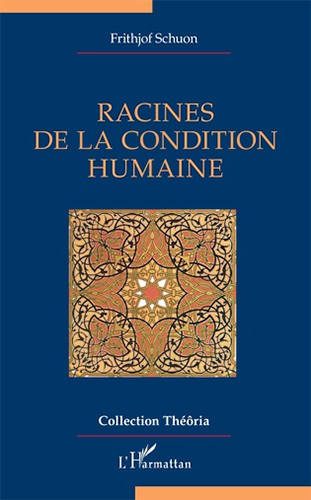
Frithjof Schuon Archive

Briefe
| Titel | Zusammenfassung | Publication Data | Dated |
|---|---|---|---|
| Extract from a letter from Frithjof Schuon | Regarding the question of transubstantiation, which I address briefly in Logic and Transcendence, the Oriental character of the words in question can be seen in their use of ellipsis: Christ did not say, “I am like a vine, like a door”, but he said, “I am the vine, the door”; likewise he did not say, “This conveys divine power in the same way my body conveys divine power”, but he said, “This is my body”. | Logic & Transc. p.237 | 02/01/1976 |
| Extract from a letter from Frithjof Schuon | One should not reproach a science for not being what it does not want to be or for not providing what it does not want to provide. In this respect one should not criticize modern chemistry insofar as it studies the phenomena it intends to study, for on its limited plane it remains within adequation and is not exceeding its strengths; nor can one blame it for remaining within the strictly human perspective in relation to matter, for it need not go beyond this point, and indeed no physical science needs to do so. | Logic & Transc. p.235 | 06/22/1964 |
Featured Books
Racines de la condition humaine (Taschenbuch)
Dieses Buch artikuliert Schuons Denken und Werk um zwei komplementäre Aspekte der Sapiential-Lehre: einerseits die reine Metaphysik, einer prinzipiellen und spekulativen Ordnung; andererseits die wirklich operative, spirituelle und initiatorische Seite.
Featured Poems
Adastra and Stella Maris: Poems by Frithjof Schuon-Symbol
What is a symbol? There are two kinds:
Adastra and Stella Maris: Poems by Frithjof Schuon-Panacea
Why has God given us the gift of speech?
Adastra and Stella Maris: Poems by Frithjof Schuon-Opposition
One asks: is Mâyâ good or bad?
Featured Articles
The Language and Style of Schuon’s Writings
These observations on the language and stle of Frithjof Schuon’s writing were excerpted from editor Dr. Seyyed Hossein Nasr’s “Introducing the Writings of Frithjof Schuon” (the ‘Introduction’) in The Essential Frithjof Schuon. In the piece, Dr. Nasr shares insights on some linguistic and literary aspects of Schuon’s writing, ending with how these aspects may contribute to the impact of Schuon’s prose upon many readers.
The Foreword to “Frithjof Schuon and the Perennial Philosophy”
In this „Foreword“ to author Harry Oldmeadow’s study of the intellectual and spiritual message of Frithjof Schuon, Dr. William Stoddart (a close associate of Schuon’s for many decades) situates Schuon’s writings in the history of human thought, gives suggestions to new readers on how to approach Schuon’s „difficult“ expositions, and touches on the esoteric nature and intent of Schuon’s work. Stoddart praises Oldmeadow’s book for its clarity and comprehensiveness.
Formal Diversity, Essential Unity: Frithjof Schuon on the Convergence of Religions
This is the text of a talk delivered at the Australasian Association for the Study of Religions Conference on the theme „The End of Religions? Religion in an Age of Globalization“, at Sydney University, in September 1999. The author discusses the traditional views of Schuon’s „transcendent unity of religions“ in the context of the modern phenomenon of globalization.
